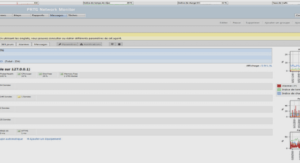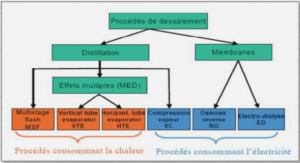Parnell‘s Irish Parliamentary Party, after undergoing division and ultimate reunion, then gaining absolute domination over most local government in Ireland, was on the verge of achieving its raison d’être, Home Rule. Then events beyond its control, including a world war, rebellion in Ireland, and oppressive military repression, caused history to pass them by and allow the future of Ireland to be formed by others who were moved by new enthusiasms such as republican separatism and cultural nationalism. Furthermore, the commitment of the Protestant population in the Northeast to union with Britain remained unshaken, even if the union would be confined to their corner of Ireland.
The Home Rule Crisis, 1891-1914
By virtue of the Act of Union of 1801 Ireland had become de facto, at least, as an entire and complete entity, part of the United Kingdom of Great Britain without the consent of the reluctant Irish, who had never been so fiercely and fervently opposed to this Union as during the Victorian Age. The Irish showed that refusal through different means, sometimes peacefully and at other times ruthlessly in order to obtain their independence or at least a certain degree of autonomy and freedom under what Parnell and Gladstone called Home Rule .
In the nineteenth century Ireland was scarcely able to support the population, and at times many people died through famine; great numbers crossed the Atlantic to America. The development of Ireland in this century is best illustrated by a glance at the population figures. Between 1840 and 1900 the population of England rose from 16 million to 32 million. During the same period the population of Ireland fell from 8.5 million to 4.5 million.
In the last quarter of the nineteenth century a majority of Irish people were demanding some measure of self-government or ―Home Rule‖, and the Irish members of the United Kingdom House of Commons in London became very active in expressing their grievances, denouncing British abuses and asserting Irish independence. Soon there was much violence and civil disturbance in Ireland, and the Irish question dominated British politics until the beginning of the Great War of 1914. One difficulty was that in the six northern counties of the province of Ulster Protestants (60٪) did not want to be included in a self governing Ireland dominated by Catholics.
The fall of Charles Stewart Parnell and his death in 1891 left the Irish Parliamentary Party divided. A moderate nationalist, John Redmond (3) led the ―Parnellites‖ but his fraction received only 9 seats in the general elections of 1892; on the other hand, the ―anti – Parnellites‖ won 72 seats.
Although both the Parnellites, who were partisans of a peaceful political issue to the Irish crisis, and anti–Parnellites, who aimed at an armed insurrection, supported Gladstone, again Prime Minister, who since February 13, 1893, had been in favour of a new Home Rule project. The second Home Rule Bill was adopted by the House of Commons by 301 against 267 voices on September 1, 1893, but a week later, it was rejected by the House of Lords by a great majority: 378 voices against 41. Some time later, Gladstone resigned; it was definitively the end of Gladstone‘s era. The general elections of 1895 were favourable for the British Conservatives and their allies, the Northern Ireland Unionists (or Loyalists).
The defeat of the second Home Rule Bill did not solve the Irish problem. It had merely, as so often before, postponed it. The Unionist coalition, ruling from 1886 to 1892 and from 1895 to 1906 was against the political autonomy of Ireland, but on the other hand, it was in favour of important agrarian reforms. In 1891 The New Land Purchase Act presented by Balfour planned to distribute more credits to farmers wanting to be landowners and a law in 1896 reinforced that measure. Other important measures contributed to improve the Irish people‘s condition. The founding of the Congested District Board in 1891 permitted to help the poor inhabitants of the coastline to create or develop fisheries and coastal industries. In 1898, the elaboration of county councils shifted the local administration from the hands of the landlords to the Irish peasants. (4)
Passed in 1903, the Wyndham‘s Act proved satisfactory to both sides, landlords and tenant-farmers. It parcelled out the big estates and encouraged the transfer of lands to the Irish peasantry. Between 1903 and 1906, there were thousands of purchases and the Irish who owned just 5% of the soil in 1878 were to possess the two thirds in 1914. In 1894, Sir Horace Plunkett (5) founded the Irish Agricultural Organization Society (I.A.O.S), claiming for ―better farming, better business, better living.‖ He succeeded in creating many cooperative stores, and contributed through a review, The Irish Homestead, to the emancipation of the rural world in Ireland. The cooperative movement continued on the spur of Arthur Griffith; as for Michael Davitt, the founder of the Irish Land League, his socialist orientation estranged him from the I.A.O.S. Being a partisan of the nationalization of lands, Davitt opposed Wyndham‘s Act, joined the newly born Labour Party, but died some time later in 1906.
When the British Liberal government was formed in December 1905, the outlook for Ireland was hopeful. The reforms of the previous twenty years had solved many problems, the country was largely prosperous, and at least on the surface, the political situation was stable, for the more militant nationalists were unable to challenge Redmond‘s predominant parliamentary party. In the north, the situation was different: the Protestants were loudly defiant. The Ulster Unionists, with a disciplined and well-equipped Volunteer Army of 100.000 men were decided to establish a government of their own. In the rest of Ireland, Redmond‘s authority was slipping from his grasp, and the revolutionary forces were threatening to capture the whole nationalist movement. They were determined to fight for their independence.(6)
After the general elections of 1910, the first major legislation of the Liberal government duly abolished the veto of the House of Lords with the Parliament Act of 1911. Thus the way was clear for a new Home Rule Bill to pass through Parliament without being vetoed to solve definitively the question of autonomy for Ireland.
A new force, the ―Irish Volunteers‖, was formed by the end of 1913 to emulate what the Unionists had done in Ulster when they created the Ulster Volunteer Force (U.V.F) as a threat to forcefully resist Home Rule. Meanwhile, in Northern Ireland, the Ulster Unionist Council had formally turned itself into a provisional government in September 1913, ready to take over the administration of the province as soon as the Home Rule Bill should become law and applied as such. A £ 1.000.000 guarantee fund had been established and fully subscribed for that purpose.
INTRODUCTION |






